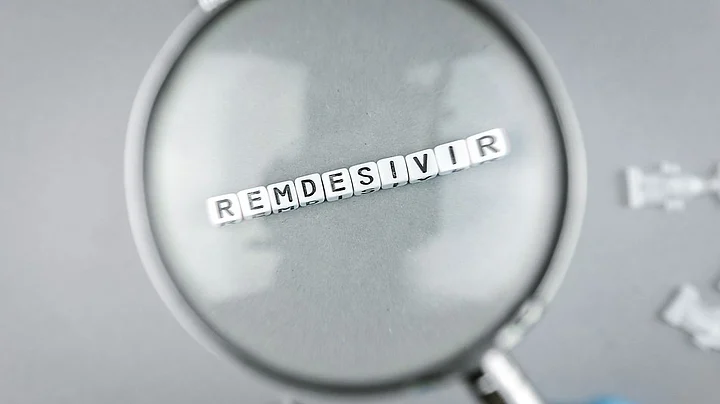Remdesivir, an experimental anti-viral drug that was developed by ‘Gilead Sciences’ to work against Ebola, has been at the centre of discourse on potential COVID-19 treatments. While multiple trials on the drug are still underway, the evidence so far has been divided on its efficacy.
Nevertheless, studies showing promising results have been brought to the world’s attention, with Dr Anthony Fauci, a top US health advisor and director at the US National Institute of Allergy and Infectious Diseases (NIAID), claiming that the drug could have ‘clear-cut’ power to fight the novel coronavirus.
On the other hand, a Chinese trial reported in The Lancet found that the drug may not be as efficient in the treatment of patients with the disease.
But before we dive into the evidence, it cannot be stressed enough that currently, there is no approved drug, cure or vaccine for COVID-19.
Jumping to any conclusions hastily could misfire, especially when the disease is still being understood and studied by scientists across the world. A critical analysis of any proposed options, therefore, needs to be conducted before any robust claims are made.
The Evidence For Remdesivir
On Wednesday, 29 April, details on two different trials were shared to show that the drug could improve outcomes in patients - especially if administered early.
Preliminary results from a trial by NIAD found that people who received the drug recovered almost 31 percent more quickly than those who did not take it. The difference in the mortality rate was lower: 8 percent among the former and 11.6 percent for the latter, but this result was not ‘statistically significant’.
The results are yet to be published and analyzed further. But NIAD Director, Dr Fauci, said that the early information had to be shared. “Whenever you have clear cut evidence that a drug works, you have an ethical obligation to immediately let the people know who are in the placebo group, so they could have access,” the Financial Times quotes him as saying. He also told reporters that although remdesivir was not a ‘knockout’, he was still ‘very optimistic’.
The second trial conducted on 397 patients was by Gilead itself, which demonstrated that hospitalised patients (with severe manifestations of the disease) receiving a 10-day treatment course of remdesivir achieved similar improvement in clinical status compared with those taking a 5-day treatment course. It also found that an earlier administration of the drug within 10 days of symptom showed better results compared to those treated later.
Due to the lack of a placebo control in this trial, any concrete conclusions from it become difficult to reach. A control group study would provide a clearer picture to compare people who don’t receive remdesivir to those who do, throwing light on the drug’s efficiency.
In an earlier article for FIT, Dr Shahid Jameel, a well-known virologist and CEO of Welcome Trust had said,
Apart from these new studies, evidence from past research has also found promising results. In an early analysis, published in the New England Journal of Medicine, researchers studied 53 COVID-19 patients who needed respiratory support, and found that a ‘compassionate’ use of remdesivir for up to 10-days in varying quantities resulted in ‘clinical improvement’ in almost 68 percent of the cases.
Another large scale global study that will be assessing remdevisir is the World Health Organisation’s ‘Solidarity’ trial, along with the Inserm DisCoVeRy trial that recently began in Europe.
You can read more about these initial trials here.
‘No Significant Clinical Benefits’: Study in The Lancet
The randomised, double-blind, placebo-controlled, multicentre trial was conducted at ten hospitals in Hubei, China. Between Feb 6, 2020, and March 12, 2020, 237 patients were enrolled and randomly assigned to a treatment group (158 to remdesivir and 79 to placebo, one withdrew).
- The trial found that the use of the drug was not associated with a difference in time to clinical improvement in patients.
- Although not statistically significant, patients receiving remdesivir had a numerically faster time to clinical improvement than those receiving placebo among patients with symptom duration of 10 days or less.
- Adverse events were reported in 102 (66%) of 155 remdesivir recipients versus 50 (64%) of 78 placebo recipients.
- Remdesivir was stopped early because of adverse events in 18 (12%) patients versus four (5%) patients who stopped placebo early.
- Therefore, in this study, patients admitted to hospital for severe COVID-19, remdesivir was not associated with statistically significant clinical benefits.
- However, the numerical reduction in time to clinical improvement in those treated earlier requires confirmation in larger studies.
A major limitation to this study was that the researchers were not able to study a large number of people (which was their initial target) because the public health measures in Wuhan led to fewer patients in mid-March, and restrictions on hospital bed availability meant that most patients were being enrolled later. The trial was also unable to assess whether an earlier treatment with remdesivir could have proven helpful.
Dr Fauci from NIAD claimed that this is “not an adequate study”, reported Bloomberg.
Multiple other trials are underway to better understand the extent to which the medicine can help. While the studies have their own limitations, either by not having a controlled group, or by not studying a big enough sample, there is hope that larger and more concrete trials will take us a step further in our understanding of the disease. Until then, supportive care and preventive measures are key.
(At The Quint, we question everything. Play an active role in shaping our journalism by becoming a member today.)
